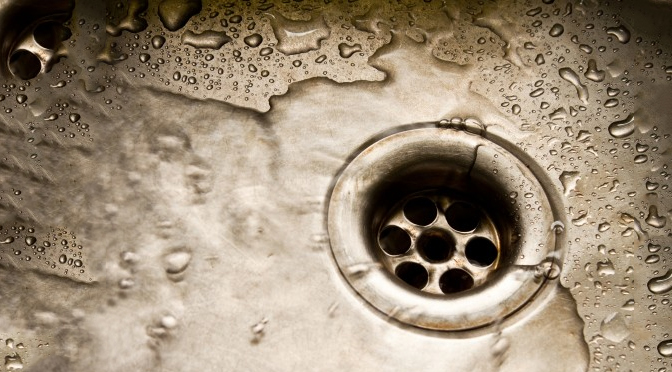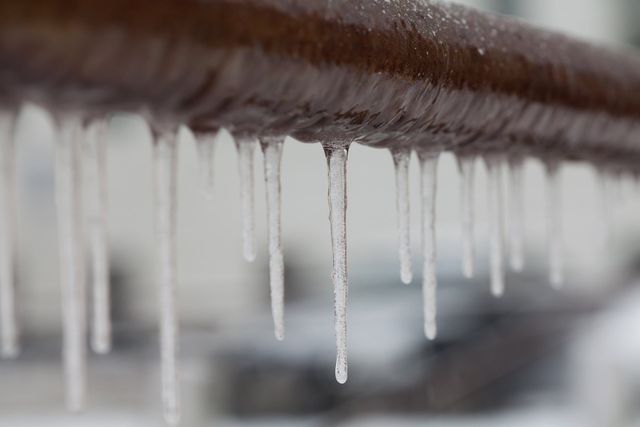They are making a few good points relating to How to Prevent Frozen Pipes in general in the article following next.

All homeowners that live in pleasant climates have to do their finest to winterize their pipelines. Failure to do so can lead to catastrophe like icy, broken, or burst pipelines.
Turn On the Faucets
When the temperature drops and it appears as if the frigid temperature level will certainly last, it will aid to turn on your water both inside and outdoors. This will keep the water moving through your plumbing systems. You'll end up throwing away gallons of water this means.
Open Up Cabinet Doors Hiding Plumbing
When it's chilly outside, it would certainly be helpful to open cupboard doors that are concealing your pipelines. For example, they could be somewhere in your kitchen area or washroom. This will allow the cozy air from your heating system to flow there. Therefore, you protect against these revealed pipelines from freezing. Doing this small trick can keep your pipes warm and restrict the possibly dangerous results of freezing temperatures.
Require Time to Wrap Exposed Pipeline
One easy and nifty hack to warm up frigid pipelines is to cover them with cozy towels. You can cover them first with towels. After securing them in position, you can put boiling water on the towels. Do it slowly to let the towels absorb the liquid. You can additionally utilize pre-soaked towels in hot water, just don't neglect to use protective gloves to safeguard your hands from the warmth.
Try a Hair Clothes Dryer or Warm Gun
When your pipes are virtually freezing, your reliable hair clothes dryer or heat weapon is a godsend. If the warm towels do not help displace any kind of resolving ice in your pipes, bowling hot air straight into them might help. Nonetheless, do not utilize various other objects that generate direct fires like a blow torch. This can result in a larger catastrophe that you can not control. You may wind up damaging your pipelines while attempting to melt the ice. As well as in the future, you may even wind up melting your house. Beware!
Shut down Water When Pipes are Frozen
Switch off the main water valve immediately if you observe that your pipelines are completely icy or almost nearing that stage. You will usually find this in your basement or utility room near the heating system or the front wall surface closest to the street. Turn it off right now to stop more damages.
Don't forget to close outside water resources, also, such as your connection for the yard residence. Doing this will certainly protect against added water from filling out your plumbing system. Sadly, with more water, more ice will pile up, which will eventually lead to rupture pipes. If you are not sure regarding the state of your pipes this winter months, it is best to call an expert plumber for an inspection. Taking this positive technique can save you thousands of dollars in repairs.
All home owners that live in warm climates have to do their ideal to winterize their pipes. Failure to do so can lead to catastrophe like frozen, fractured, or burst pipes. If the warm towels do not assist displace any type of working out ice in your pipelines, bowling warm air directly right into them may help. Transform off the primary water valve immediately if you see that your pipes are entirely frozen or virtually nearing that phase. With more water, even more ice will stack up, which will ultimately lead to burst pipelines.
PREVENT YOUR PIPES FROM FREEZING THIS WINTER
A Leading Cause of Property Damage
When the weather is taking a deep nose dive into the cold dreary days, the risk of your pipes freezing and potentially bursting skyrockets. Unfortunately, during these cold dreary months, burst pipes are the most common denominator for property damage. The pipes that are most at the risk are those that are in areas where it is most cold in your home. For instance, pipes located in interior places such as basements, attics, and your garage. Unfortunately, that doesn’t mean that the pipes running through your cabinets or exterior walls can’t freeze. Good news, however, is that you can do things to help prevent pipes from freezing.
How to Prevent Pipes From Freezing
Once the temperature starts to drop during the winter, you should be taking the proper measures needed to ensure that your pipes stay warm and that there is circulation of water through them. Some steps that experts may recommend could go against your better judgement when it comes to saving water and heat. However, it would go without saying that when expenses are compared, damaged pipes could put a bigger dent in your wallet than a water bill.
What Can I Do?
- Keep your garage door closed. This is very important, especially if you have water supply lines running through your garage.
- Open your kitchen and bathroom cabinets to allow warm air to circulate through them.
- Allow air circulation throughout your home. Keeping the interior doors open will once again allow the warm air to circulate inside your home.
- Ensure your thermostat is running the same temperature throughout the night and day.
- If you plan to be away from home during the cold months, set your temperature no lower than 55° F. This should provide enough heat to keep the pipes warm and prevent any remaining water inside the pipes from freezing.
- For more of a long-term solution, add insulation to attics, basement, and other crawl spaces around your home.
- By allowing your faucet to drip, it will alleviate pressure in the system. This is important because the pressure that is created between the blockage and the faucet can potentially cause the pipes to burst. Allowing the faucet to drip will prevent the pressure from building up, therefore keeping the pipes from bursting.
- Seal any cracks, openings, and crawl spaces around your home to prevent cold air from coming inside. This keeps your pipes-not to mention your home-warmer and less susceptible to issues caused by freezing temperatures.
- For the pipes in your home that are easily accessible, applying electrical tape to them might prevent them from freezing over. This is a quick fix, as you can apply the tape directly to the pipe. There are two options for heating tapes. One turns on and off by itself when it senses heat is needed. The other type of heating tape needs to be applied when heat is needed and removed when not necessary. If you have exposed pipes in your home, you can check this website to take a look at a few options that would be available at a shop near you.

Hopefully you liked our part on How to Prevent Frozen Pipes. Thanks a ton for taking the time to browse our piece of content. Remember to take the time to share this blog post if you enjoyed it. We recognize the value of reading our article about Winterizing Your Pipes.
Quick resolutions for plumbing disruptions.
Comments on “Effective Winterizing Strategies to Safeguard Your Pipes From Bursting in Cold Weather”